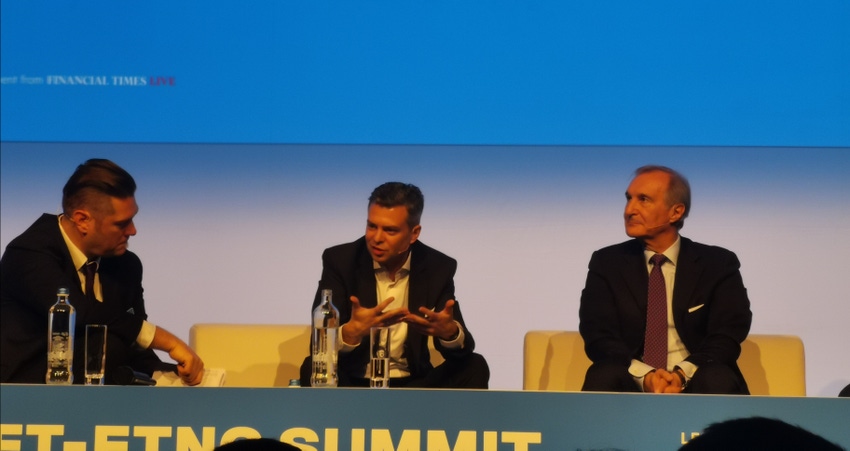It certainly isn’t unusual for telcos to have a swipe at regulators, and they never miss the opportunity to do so.
December 2, 2019

It certainly isn’t unusual for telcos to have a swipe at regulators, and they never miss the opportunity to do so.
The FT-ETNO Conference in Brussels is the perfect environment for passive-aggressive duelling between telcos and regulators. ETNO is of course an industry lobby group, so you have to take statements with a pinch of salt, but occasionally there are some valid points made.
“At the moment, I see quite an imbalance,” said Thomas Arnoldner, CEO of the A1 Telecom Austria Group. “I have full empathy with the complexity of the process, I do not envy you [European Commission] at all. The process is a very complex one.”
This is the conundrum being faced by regulators in certain regions. Technology is moving at a pace which is almost impossible for authorities to track. It is very easy to say regulations should be implemented more rapidly, but the democratic process is a stumbling block.
As Roberto Viola, Director General of DG Connect at the European Commission pointed out, European states operate as democracies. In dictatorships, regulation and legislation can be passed on a whim, but in more reasonable societies, rules need to be evidence-based. Once the building blocks of the rules have been established, the next step is the democratic process, taking the rules through the relevant parliamentary mechanism.
This creates a difficult equation to balance. Creating world-leading regulation takes time, GDPR took six years for example, but today’s society demands speed and to be proactive from the early stages of development.
“We don’t need less or more regulation, but we need better regulation which adapts to the society,” said A1 Telecoms Arnoldner.
This is a consistent gripe for the telcos. Most regulation which dictates today’s state-of-play for this industry was written decades ago. It is restrictive in its nature and designed for an analogue era. Arnoldner believes some of the current clauses in the ePrivacy regulation, set to be introduced over the coming months, are equally restrictive. They are not designed as open rules, allowing regulation to adapt to the evolution of technology.
Not only does this create the same awkward regulator landscape which we are living in today, where rules are from a bygone era, but it might also inhibit innovation. Flexibility is key if Europe is to compete with the likes of the US, Korea and China in the global digital economy.
“We have to be there from the start to set the standards which have to be followed,” said Petra De Sutter, a member of European Parliament and the Chair of Internal Market and Consumer Protection (IMCO) working group. “We cannot set standards and regulation if the technology is already there.”
This is another perfectly valid point, and perhaps demonstrates the issue with regulation. The vast majority of regulations are designed for technologies which are already climbing the hype-curve. The foundations of these breakthroughs have been developed and innovators are focusing on fine-tuning; this is too late to have any material impact on the fundamentals of the technology.
These points present an interesting question; if this dynamic continues, will regulation ever be fit-for-purpose?
About the Author(s)
You May Also Like








.png?width=300&auto=webp&quality=80&disable=upscale)


_1.jpg?width=300&auto=webp&quality=80&disable=upscale)


.png?width=800&auto=webp&quality=80&disable=upscale)